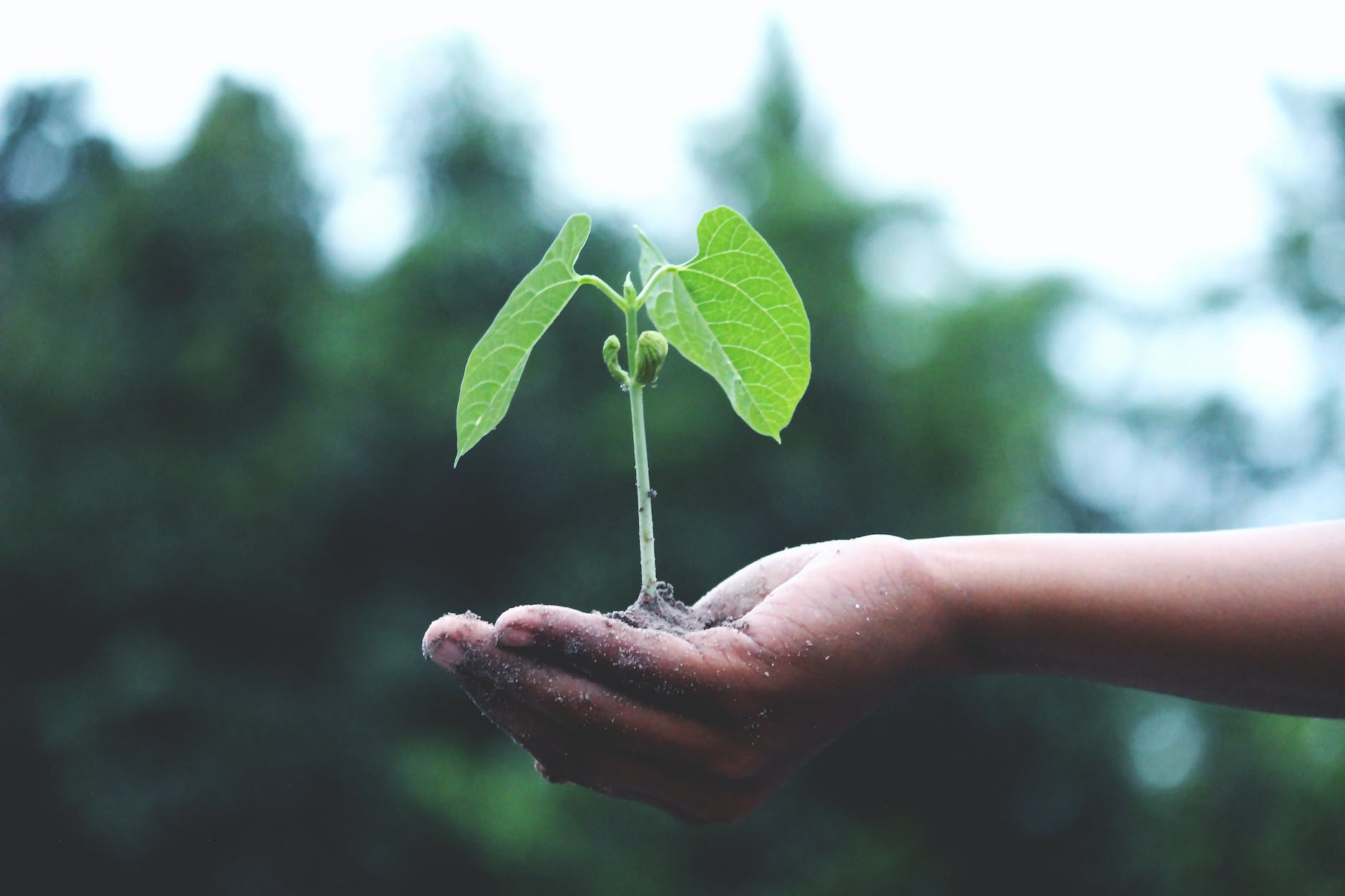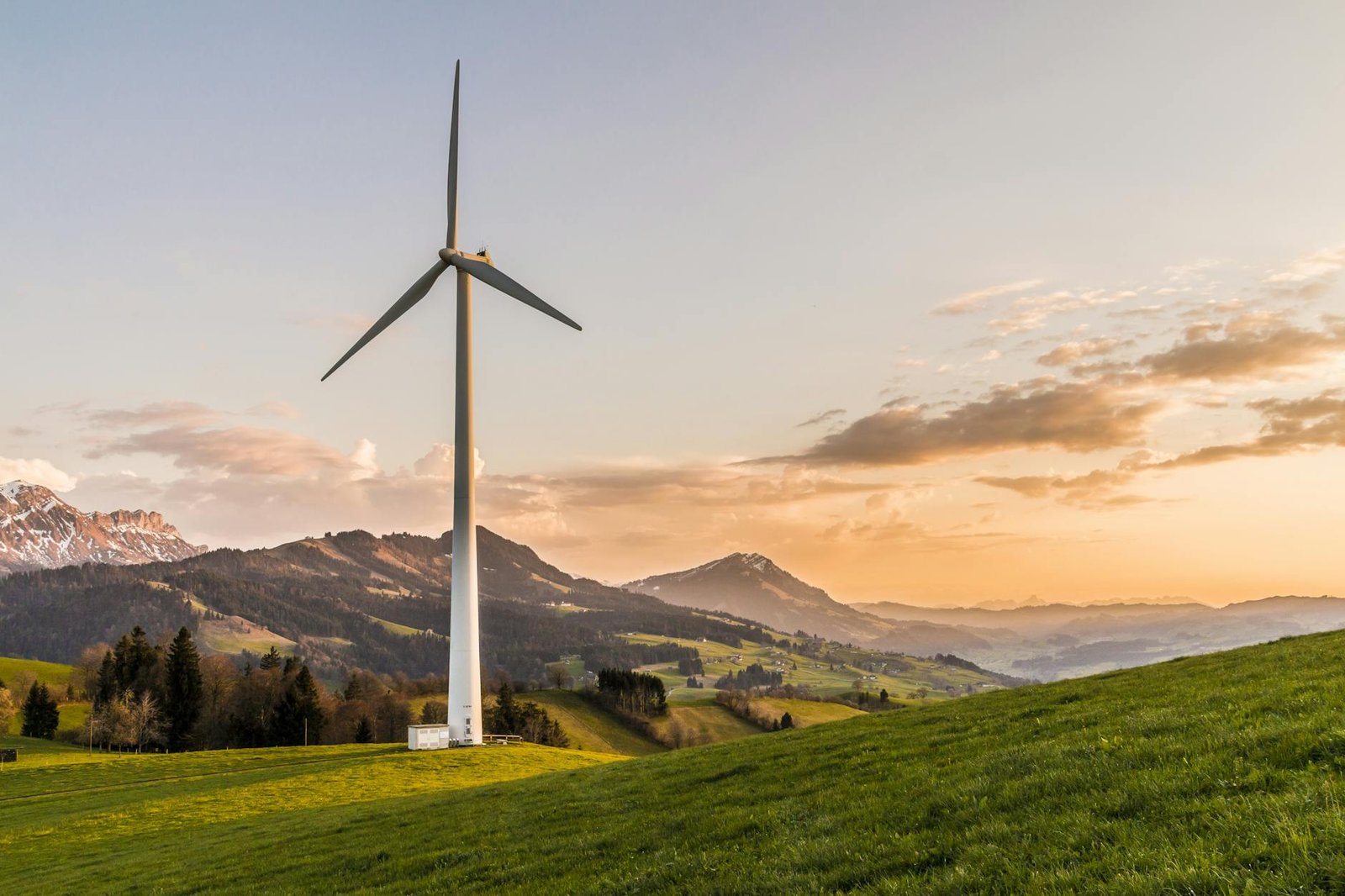Sustainability
Basic sciences for sustainable development challenges and prospects
Published
3 years agoon

Basic sciences play a crucial role in sustainable development by providing the foundation for understanding the challenges we face and developing innovative solutions. Here are some key areas of basic sciences that contribute to sustainable development, along with the challenges and prospects associated with each:
- Physics and Energy Science: Challenges: Developing renewable and clean energy technologies, improving energy efficiency, and finding sustainable alternatives to fossil fuels. Prospects: Advancements in solar, wind, and other renewable energy sources, energy storage technologies, and the integration of smart grids for efficient energy management.
- Chemistry and Materials Science: Challenges: Developing environmentally friendly materials, reducing waste generation, and finding sustainable manufacturing processes. Prospects: Designing sustainable and recyclable materials, developing green chemistry principles, and exploring new methods for waste reduction and recycling.
- Biology and Ecology: Challenges: Protecting biodiversity, understanding and mitigating the impacts of climate change on ecosystems, and addressing challenges related to food security and agricultural sustainability. Prospects: Conservation efforts, sustainable land and water management practices, ecosystem restoration, and advancements in agricultural techniques such as precision farming and genetic engineering for crop resilience.
- Earth Sciences: Challenges: Studying and predicting the impacts of climate change, understanding natural hazards, and managing water resources sustainably. Prospects: Climate modeling, monitoring and analyzing environmental changes, developing sustainable water management strategies, and implementing early warning systems for natural disasters.
- Mathematics and Data Science: Challenges: Analyzing complex data related to sustainable development, modeling and predicting environmental processes, and optimizing resource allocation. Prospects: Data-driven decision-making, modeling and simulation techniques, developing algorithms for resource optimization, and leveraging artificial intelligence for sustainable development solutions.
- Social Sciences and Economics: Challenges: Understanding human behavior and social dynamics related to sustainable development, addressing inequalities, and promoting sustainable consumption and production patterns. Prospects: Conducting interdisciplinary research, designing policies for sustainable development, integrating social and environmental considerations into economic models, and fostering sustainable lifestyles through education and awareness.
The prospects for basic sciences in sustainable development are promising, thanks to advancements in technology, increased interdisciplinary collaboration, and growing awareness of the need for sustainability. However, challenges such as funding constraints, the pace of technological advancements, and the complexity of socio-economic systems require continued investment and concerted efforts from scientists, policymakers, and society as a whole. By harnessing the potential of basic sciences, we can overcome these challenges and pave the way for a more sustainable and resilient future.
Related
You may like
Sustainability
5 Powerful Community Action Impact Strategies: How Local Initiatives Drive Global Change
Published
1 year agoon
January 29, 2025
The Power of Community Action Impact
Community action impact is revolutionizing how we approach social change. According to research from the United Nations Development Programme, organized local initiatives can create ripple effects that transform entire regions. This comprehensive guide explores how small-scale efforts amplify into lasting global changes. For more background, check out The Evolution of Grassroots Movements.From Neighborhood Gardens to Global Green Movements
When Maria Rodriguez started a small community garden in downtown Detroit, she demonstrated the tremendous community action impact possible through local initiative. Her project, featured in our Urban Farming Revolution series, has helped feed thousands and sparked a movement that’s reshaping how cities approach food security. The American Community Garden Association reports that similar initiatives have grown by 200% in the last decade.The Multiplier Effect of Local Action
Research shows that small community initiatives can have exponential impact when properly supported and shared. According to the Community Impact Institute, local projects that succeed in their first year have a 70% chance of being replicated in other communities within three years.
Key factors that maximize community action impact include:
- Digital documentation and sharing of best practices
- Strong community engagement and leadership
- Adaptable frameworks that can be customized for different contexts
- Partnership with existing organizations and networks
- Measurable impact metrics that demonstrate value
Real Stories of Cascading Change
The Plastic-Free Peninsula Project
What began as a neighborhood cleanup initiative in Cornwall, UK, evolved into a comprehensive plastic reduction program now implemented in coastal communities across 12 countries. Their community action impact has resulted in removing over 50 tons of plastic from beaches worldwide.
Solar Sisters of Senegal
Three women in a rural Senegalese village started a solar lamp sharing program. Today, their model has been adopted by 200+ communities across West Africa, providing clean energy access to over 50,000 people. This remarkable community action impact demonstrates how simple solutions can address complex challenges.
Creating Your Own Impact Initiative
Starting a community initiative doesn’t require massive resources or expertise. Here’s how to maximize your community action impact:
- Identify a specific local need that resonates with your community
- Start small and document everything
- Build a core team of committed individuals
- Create partnerships with local organizations
- Share your story and learnings widely
- Measure and communicate your impact regularly
The Science of Social Diffusion
Research from the Social Innovation Institute shows that successful community action impact typically follows a pattern of social diffusion:
- Initial Phase: 3-6 months of local implementation
- Validation Phase: 6-12 months of documented impact
- Sharing Phase: 12-18 months of knowledge transfer
- Replication Phase: 18+ months of adoption by other communities
Measuring Community Action Impact
Understanding how to measure community action impact is crucial for success:
- Quantitative Metrics
- Number of people directly affected
- Resources mobilized
- Economic benefits generated
- Environmental improvements measured
- Qualitative Indicators
- Community engagement levels
- Behavioral changes observed
- Social cohesion improvements
- Knowledge transfer success
Looking Forward
As we face increasingly complex global challenges, the power of community action becomes more critical than ever. The ripple effects of local initiatives demonstrate that meaningful change often starts small but can scale to address major social and environmental issues.
“Never doubt that a small group of thoughtful, committed citizens can change the world,” anthropologist Margaret Mead famously said. Today’s successful community initiatives prove her right, showing that local action, when properly structured and shared, can create lasting global impact.
Take Action Now
Are you inspired to start your own community impact initiative? Share your ideas in the comments below or connect with other changemakers in our community forum. Together, we can turn small actions into powerful waves of positive change.
This article is part of HumanityPost’s ongoing series on community-led social change. Subscribe to our newsletter for more inspiring stories and practical guides for creating positive impact.
Related
Sustainability
10 Innovations Revolutionizing Business with Sustainable Business Solutions
Published
1 year agoon
January 27, 2025
In an era where sustainability is paramount, businesses are increasingly adopting innovative solutions to reduce their environmental footprint. These advancements not only contribute to a healthier planet but also drive efficiency and profitability. Here are ten groundbreaking innovations that are revolutionizing the business world with sustainable business solutions.
1. Renewable Energy Integration

The shift towards renewable energy sources like solar, wind, and hydroelectric power is one of the most significant changes in the business landscape. Companies are installing solar panels, wind turbines, and other renewable energy systems to power their operations. This transition not only reduces carbon emissions but also lowers energy costs in the long run.
2. Electric and Autonomous Vehicles
The transportation sector is undergoing a transformation with the advent of electric vehicles (EVs) and autonomous driving technology. Businesses are incorporating EVs into their fleets to reduce greenhouse gas emissions and fuel costs. Autonomous vehicles, on the other hand, promise to optimize routes and reduce traffic congestion, further lowering the environmental impact.
3. Circular Economy Practices
The circular economy model focuses on reusing, refurbishing, and recycling materials to minimize waste. Businesses are redesigning products with longer lifecycles and creating take-back programs to ensure materials are recovered and reused. This approach reduces the demand for raw materials and lessens the environmental burden of waste disposal.
4. Green Building Technologies
Sustainable architecture and construction practices are becoming mainstream. Green buildings incorporate energy-efficient designs, materials, and technologies to reduce energy consumption and enhance indoor environmental quality. Features like smart HVAC systems, LED lighting, and green roofs are now common in modern commercial buildings.
5. Smart Grids and Energy Management Systems
Smart grids and advanced energy management systems enable businesses to monitor and optimize their energy usage in real-time. These technologies use sensors, IoT devices, and data analytics to improve energy efficiency, reduce waste, and lower operational costs. They also facilitate the integration of renewable energy sources into the power grid.
6. Carbon Capture and Storage (CCS)
Carbon capture and storage technology captures CO2 emissions from industrial processes and stores them underground or uses them in other applications. This innovation helps businesses significantly reduce their carbon footprint and meet regulatory requirements. CCS is particularly beneficial for industries with high carbon emissions, such as manufacturing and energy production.
7. Sustainable Supply Chain Management
Sustainable supply chain practices involve sourcing materials responsibly, reducing waste, and optimizing logistics to minimize environmental impact. Companies are adopting blockchain technology to enhance transparency and traceability in their supply chains, ensuring that suppliers adhere to sustainability standards.
8. Water Conservation Technologies

Water scarcity is a growing concern, and businesses are implementing innovative solutions to conserve this precious resource. Technologies like rainwater harvesting, greywater recycling, and advanced irrigation systems help companies reduce water usage and improve efficiency in their operations.
9. Biodegradable and Eco-friendly Materials
The development of biodegradable and eco-friendly materials is transforming product design and packaging. Businesses are replacing traditional plastics with biodegradable alternatives made from plant-based materials. This shift reduces plastic pollution and promotes a more sustainable approach to product manufacturing.
10. AI and Machine Learning for Sustainability
Artificial intelligence (AI) and machine learning are powerful tools for driving sustainability. These technologies analyze vast amounts of data to identify patterns and optimize processes for energy efficiency, waste reduction, and resource management. AI-driven insights help businesses make informed decisions that align with their sustainability goals.
Conclusion
The integration of these innovative technologies and practices is paving the way for a greener future in the business world. By adopting sustainable business solutions, companies can not only reduce their environmental impact but also enhance their operational efficiency and profitability. Embracing these advancements is essential for businesses aiming to thrive in an increasingly eco-conscious market.
FAQs
Q1: How can small businesses adopt these sustainable business solutions?
Small businesses can start by implementing energy-efficient practices, such as switching to LED lighting and optimizing their energy use. They can also explore local renewable energy options and adopt sustainable supply chain practices.
Q2: What are the financial benefits of going green?
Going green can lead to significant cost savings through reduced energy and water consumption, lower waste management costs, and potential tax incentives for sustainable practices. Additionally, it can enhance a company’s brand image and attract environmentally conscious customers.
Q3: Are there government incentives for adopting sustainable business solutions?
Yes, many governments offer incentives such as tax credits, grants, and subsidies to encourage businesses to adopt sustainable business solutions. It’s advisable to check local regulations and programs for available incentives.
Q4: How can AI help in reducing a company’s carbon footprint?
AI can analyze data to identify inefficiencies and recommend improvements in energy usage, supply chain management, and resource allocation. This helps businesses optimize their operations and reduce their overall carbon footprint.
Q5: What role do consumers play in encouraging businesses to adopt sustainable practices?
Consumers play a crucial role by choosing to support businesses that prioritize sustainability. Their purchasing decisions can drive companies to adopt greener practices and invest in sustainable technologies.
By embracing these innovations, businesses can contribute to a more sustainable future while also reaping the benefits of increased efficiency and profitability.
Related
Sustainability
5 Simple Ways to Live More Sustainably and Save Money
Published
3 years agoon
May 3, 2023
Sustainability is all about finding ways to live in harmony with our planet and its resources. By making small changes in our daily lives, we can reduce our impact on the environment and save money at the same time. Here are five simple ways to live more sustainably and save money:
- Use reusable bags and water bottles: One of the easiest ways to reduce waste is by using reusable bags and water bottles. By bringing your own bags to the grocery store and filling up your water bottle instead of buying plastic bottles, you can reduce your plastic waste and save money in the long run.
- Switch to LED light bulbs: LED light bulbs use significantly less energy than traditional incandescent bulbs, which means you can save money on your energy bills while reducing your carbon footprint.
- Eat a plant-based diet: The meat and dairy industries are major contributors to greenhouse gas emissions and deforestation. By eating a plant-based diet, you can significantly reduce your carbon footprint while also saving money on groceries.
- Use public transportation or carpool: Cars are a major source of air pollution and greenhouse gas emissions. By using public transportation or carpooling, you can reduce your carbon footprint and save money on gas and maintenance.
- Reduce water usage: Conserving water is another important aspect of sustainability. Simple actions like taking shorter showers, fixing leaks, and using a broom instead of a hose to clean can help reduce your water usage and save money on your water bill.
By making these small changes, you can live more sustainably and save money at the same time. It’s important to remember that sustainability is a journey, not a destination. By taking small steps each day, we can all do our part to create a better world for ourselves and future generations.
Related
LATEST NEWS


5 Powerful Community Action Impact Strategies: How Local Initiatives Drive Global Change
The Power of Community Action Impact Community action impact is revolutionizing how we approach social change. According to research from...


10 Innovations Revolutionizing Business with Sustainable Business Solutions
In an era where sustainability is paramount, businesses are increasingly adopting innovative solutions to reduce their environmental footprint. These advancements...


Everybody Wants Gaza’s Gas
While its citizens take to the streets demanding a ceasefire, the silence of Europe’s leaders is deafening. Ally-ship runs deep,...


Basic sciences for sustainable development challenges and prospects
Basic sciences play a crucial role in sustainable development by providing the foundation for understanding the challenges we face and...


Climate Change Impacts in Everyday Life
Climate change has a profound impact on everyday life, touching various aspects of our routines and experiences.Climate change has a...


The Urgency of Environmental Sustainability: Consequences of Failure
In today’s rapidly changing world, environmental sustainability has become a pressing concern. Failing to prioritize and maintain sustainable practices can...


Understanding Good Manufacturing Practices (GMP): Guidelines for Quality & Safety
Good Manufacturing Practices (GMP) are a set of guidelines designed to uphold the quality, safety, and efficacy of products manufactured...
ENTERTAINMENT


‘Being Haangryy’ Salman Khan’s New Initiative
Salman Khan Launches New Initiative ‘Being Haangryy’ To Provide Food To The Needy, Wins Hearts Salman Khan is a man with a big heart....


5 Coronavirus good news stories
coronavirus good news stories 1 1.Ariana Grande, Taylor Swift And Britney Spears Help Out Struggling Fans While there have been...
